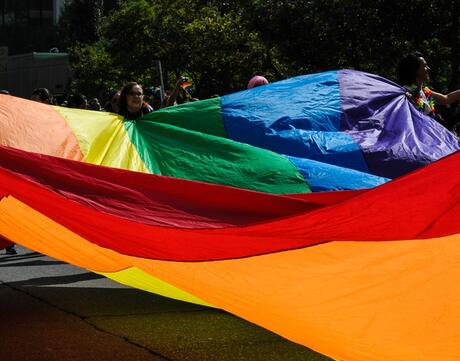
May Assemblies
Facing History Approach to Assemblies
Assemblies are a critical part of the school day. Regular assemblies provide an opportunity to bring your students together in order to introduce important issues and share your school’s values and priorities. Utilised correctly, assemblies have the potential to build an inclusive and supportive school community.
At Facing History, our assemblies have been designed to introduce students to significant annual and/or historical events, whilst supporting them to become empathetic and critical thinkers. Each assembly also provides students with opportunities to share their thoughts with each other, helping them to develop oracy and listening skills. The assemblies last for approximately 20 minutes, but can be adapted to suit your specific timing requirements.
Facing History assemblies do not require specialist knowledge and are suitable for use in a KS3, KS4, S1, S2, S3 and S4 assembly or in tutor time/PSHE. Some assemblies have been adapted from existing Facing History lessons and resources available on our website, while others have been newly created.
Assemblies in May
There are 3 assemblies available for use in May.
Assembly PowerPoints
World Press Freedom Day
What is World Press Freedom Day and why does it matter? This assembly encourages young people to consider why a free press matters and what role it plays within a functioning democracy. Students will also be given the opportunity to explore, via discussion, what might be the consequences if journalists are not able to freely cover protests and to consider what the UK’s ranking in a global index of freedom of expression suggests about press freedom in the UK.
International Day Against Homophobia, Biphobia and Transphobia
What is International Day Against Homophobia, Biphobia and Transphobia and why does it matter? This assembly is an opportunity to spotlight the violence and discrimination faced by the LGBTQ+ community and to draw attention to the impact of hate crime. During this assembly, students will be given the opportunity to watch a video in which transgender people talk about transphobia before considering how people may feel if they are targeted or treated differently due to one aspect of their identity.
Mental Health Awareness Week
What is Mental Health Awareness Week and why does it matter? The theme for this year’s Mental Health Awareness Week is anxiety and this assembly encourages young people to consider the impact of anxiety as well as reminding them of the need to prioritise their own mental health. Additionally, it encourages them to share ideas for self-care and to consider why self-care is important for looking after their mental health. This assembly also provides an opportunity for schools to spotlight external agencies that young people can turn to if they wish to discuss mental health with specialists outside of school.
Notes for Use
Download the student-facing slides here. While you may need to modify these to meet the needs of your students, please note that Facing History and Ourselves does not endorse any changes that alter the presentation's content or original layout.



